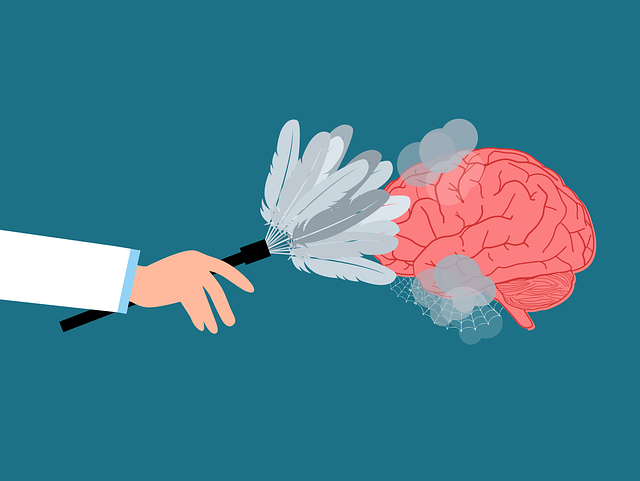Cultural competency in healthcare is crucial for delivering effective care, especially with diverse patient populations. The Wheat Ridge Acceptance and Commitment Therapy (ACT) Training program offers a unique approach by focusing on unconscious biases and integrating mindfulness meditation with diverse patient narratives. This transforms healthcare provider education, improving patient outcomes and alliances through inclusive practices. Well-designed cultural competency initiatives, like those at the Wheat Ridge ACT Center, use evidence-based techniques to enhance self-awareness, stress management, and communication, resulting in better patient satisfaction and clinical results. Overcoming resistance to change requires a comprehensive strategy, with Wheat Ridge ACT providing valuable insights on managing biases and stress to create an inclusive healthcare environment.
Healthcare provider cultural competency training is more than a nicety; it’s a necessity in modern practice. As healthcare becomes increasingly diverse, understanding and respecting patient backgrounds, beliefs, and preferences are crucial for quality care. This article explores various aspects of cultural competency, including the impact of Wheat Ridge Acceptance and Commitment Therapy (ACT) training on reducing provider biases. We’ll delve into best practices for designing effective programs, real-world success stories, and strategies for overcoming challenges in implementation and retention.
- Understanding Cultural Competency in Healthcare: A Necessity in Modern Practice
- The Impact of Wheat Ridge Acceptance and Commitment Therapy (ACT) Training on Provider Biases
- Designing Effective Cultural Competency Programs for Medical Professionals
- Real-World Application: Success Stories from Healthcare Organizations
- Overcoming Challenges and Barriers to Implementation and Retention
Understanding Cultural Competency in Healthcare: A Necessity in Modern Practice

In today’s diverse healthcare landscape, cultural competency is no longer an option but a necessity. It involves understanding and appreciating the cultural backgrounds, values, and beliefs of patients, especially those from different ethnic, racial, and socioeconomic groups. This concept is pivotal in ensuring effective communication and quality care delivery, as it helps healthcare providers bridge the gap between diverse patient populations and modern medical practices. By fostering cultural competency, healthcare professionals can create an environment where every patient feels accepted and understood, promoting better health outcomes.
For instance, Wheat Ridge Acceptance and Commitment Therapy (ACT) offers valuable insights into coping skills development and self-care practices that respect and integrate a patient’s cultural identity. ACT encourages individuals to embrace mindfulness and acceptance, which can be tailored to address specific cultural needs related to mood management. This personalized approach not only enhances therapeutic effectiveness but also cultivates a deeper sense of trust between patients and healthcare providers, ultimately improving patient satisfaction and adherence to treatment plans.
The Impact of Wheat Ridge Acceptance and Commitment Therapy (ACT) Training on Provider Biases

The Wheat Ridge Acceptance and Commitment Therapy (ACT) Training program offers a transformative approach to addressing healthcare provider biases. By integrating evidence-based practices, this training equips professionals with the tools to navigate complex interpersonal dynamics with greater awareness and flexibility. Through exposure to diverse patient narratives and fostering an environment of positive thinking, providers learn to minimize unconscious biases that can impact clinical decision-making.
ACT’s emphasis on mindfulness meditation encourages practitioners to remain present during interactions, promoting empathetic connections. This training goes beyond crisis intervention guidance, aiming to create a cultural shift where healthcare delivery is inclusive and responsive to the unique needs of every patient. The result is improved patient outcomes and stronger therapeutic alliances built on mutual understanding and respect.
Designing Effective Cultural Competency Programs for Medical Professionals

Effective cultural competency training for healthcare providers involves designing programs that go beyond surface-level awareness. It’s about creating safe spaces where medical professionals can learn to navigate complex cultural nuances, understand implicit biases, and develop the skills needed to provide inclusive care. This includes exploring topics like communication styles, family dynamics, and community resources relevant to diverse patient populations. By integrating evidence-based practices such as Wheat Ridge Acceptance and Commitment Therapy (ACT), Stress Reduction Methods, and Social Skills Training, these programs empower healthcare workers to foster genuine connections with patients from all backgrounds.
The curriculum should also emphasize the importance of self-reflection and cultural self-awareness. Encouraging professionals to examine their own values, assumptions, and experiences enables them to offer more empathetic care. Incorporating Emotional Well-being Promotion Techniques can further enhance these training programs, helping healthcare providers manage their stress levels while interacting with patients from diverse cultures. Ultimately, well-designed cultural competency initiatives equip medical professionals with the tools to deliver culturally sensitive and compassionate care.
Real-World Application: Success Stories from Healthcare Organizations

Many healthcare organizations have successfully implemented cultural competency training programs with remarkable outcomes. One such example is Wheat Ridge Acceptance and Commitment Therapy (ACT) Center, which has been at the forefront of promoting emotional well-being. Through their comprehensive training sessions, they’ve equipped healthcare providers with tools to address diverse patient needs, especially in managing anxiety. By integrating self-awareness exercises and emotional regulation techniques, the center has witnessed improved patient satisfaction and clinical outcomes.
The ACT Center’s approach highlights the real-world application of cultural competency. Their success story demonstrates that training initiatives can lead to tangible benefits. By fostering a more inclusive and empathetic healthcare environment, providers are better equipped to offer anxiety relief and personalized care, ultimately enhancing the overall patient experience.
Overcoming Challenges and Barriers to Implementation and Retention

Implementing cultural competency training within healthcare organizations presents unique challenges, particularly when addressing systemic barriers that have historically hindered equitable access to care. One notable example is the need to overcome resistance to change, as some providers may question the relevance or effectiveness of such programs. Overcoming these hurdles requires a multi-faceted approach, including engaging and educating all stakeholders, demonstrating the tangible benefits through pilot projects and case studies, and aligning training objectives with broader organizational goals, such as improving patient outcomes and satisfaction.
Wheat Ridge Acceptance and Commitment Therapy (ACT) offers valuable insights into navigating these challenges. By focusing on mental health policy analysis and advocacy, ACT promotes emotional regulation skills that can help providers manage their own biases and stress, fostering a more inclusive environment. Moreover, integrating mood management techniques within the training can enhance cultural sensitivity by teaching practitioners to recognize and address emotional reactions that may impede effective communication with diverse patient populations. This holistic approach not only addresses practical obstacles but also empowers healthcare providers to become agents of positive change, ultimately retaining and amplifying cultural competency within their practice.
Healthcare provider cultural competency training, as demonstrated by the success of Wheat Ridge Acceptance and Commitment Therapy (ACT) programs, is no longer a choice but an imperative. By addressing biases and fostering understanding, these initiatives ensure equitable care for diverse patient populations. Effective programs, tailored to real-world needs, can significantly enhance patient outcomes and organizational success. Overcoming implementation challenges requires sustained commitment and collaboration, yet the benefits are immeasurable, creating a more inclusive and accessible healthcare landscape.










